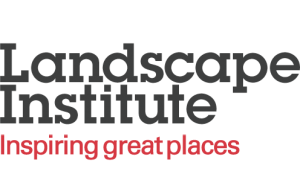Research seminar tackles major issues
The ‘lecture’ will in fact be three lectures, given by the joint editors of the soon-to-be-published Routledge Companion to Landscape Studies and entitled ‘Landscape and Human Destiny’. Held jointly with the Landscape Institute, the event will be an opportunity for the three editors to discuss the common themes that they identified in the contributions to the book.
Peter Howard, visiting professor of cultural landscape at Bournemouth University, will reflect on his changing experiences of thinking about landscape throughout his career. ‘I am coming to this as the older gentleman,’ he said. ‘In 1974 I was appointed at an art school as a geographer to plough the furrow between landscape and art. I had grown up with a view of landscape as a historical artefact. That was, I found, a very different view to that of landscape artists.
Howard feels that it is appropriate to take a very personal view since ‘architecture may be rational but landscape architecture certainly isn’t. It is almost always visceral and personal.’ He is concerned that ‘Landscape is becoming such an intellectual concept that it is easy to take it away from the ordinary landscape and ordinary people.’ There is a danger he believes that the experts who are increasingly making decisions about landscape ‘have taken to themselves the role of the aristocrats who actually owned the land’.
Ian Thompson, reader in landscape architecture at Newcastle University, said, ‘I am interested in aesthetics and the value systems that operate in landscape architecture. These discussions are taking place at a time of crises and rapid change. We are having to take responsibility for the environment. There was an idea that environmental ethics was just about the need to look after the “good bits”. But there has been an enormous shift. Because of global warming we have realised there is no such thing as wild nature. Some geologists say that we are now in the anthropocene era, where humans are affecting the surface of the earth. It is misguided to think that there is such a thing as pristine nature any more. It is rather frightening to realise that we are responsible for everything.’
The third speaker will be the third editor, Emma Waterton from the Institute for Culture and Society at the University of Western Sydney. Her talk will draw on developments in post-phenomenological theories to look at new ways of conceptualising landscape.
The event starts at 6.30 with a reception at 8pm. Places are limited so please email admin@landscaperesearch.org if you want to attend.




